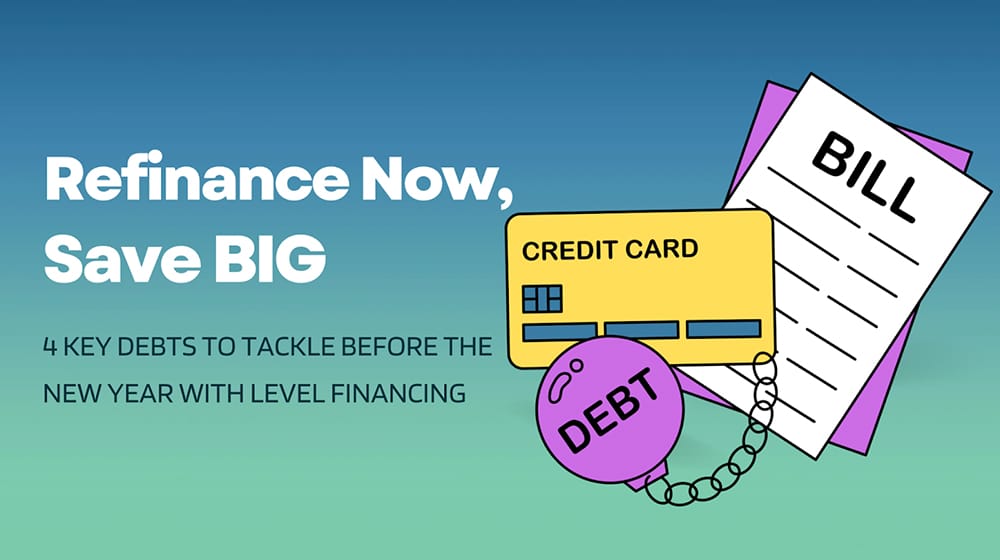Are you looking to earn your first (or second) degree from an undergraduate or graduate program? If so, it’s time to consider how expensive will paying tuition and other education costs be.
After all, the decision could mean carrying debt for a decade, if not longer. Although Americans often view education as a way to earn a high-paying job, it could potentially overshadow your future financial goals.
We all know that the price of a degree isn’t inexpensive. When you’re planning to borrow thousands or even hundreds of thousands for your education, considering the financial impact is a wise choice. But just how expensive has it become to earn a degree? The numbers from federal sources are astonishing, and that’s putting it lightly.
Let’s explore the latest research while uncovering specifics shared by the Education Department about the financial cost, professional benefits, and additional value of earning a degree.
If you believe that education expenses haven’t changed much since your parents or grandparents took their college exams, brace yourself for some unexpected truths.
What Does the Education Department Say?
According to the National Center for Education Statistics, average annual earnings vary significantly based on degree obtainment.
The professionals among us, think attorneys and doctors, can expect to earn around $102,265 annually, but non-high school attendees earn an average of $24,965. This contrast in earnings power helps explain the tangible benefits of post-secondary education—more income.
However, this U.S. Department of Education report on the changing landscape for graduate borrowers over the past sixteen years explains how the financial commitment to a degree is increasingly burdensome. In 2022, graduate students borrowed 47% of federal educational loans, only 21% of the total borrowing pool.
Since undergrad loans cap $12,500 annually, these borrowing power differences suggest a high debt concentration among the highly educated. While this wouldn’t be an issue if wages kept up with educational costs, advanced degree holder earnings have remained stagnant over the past two decades.
Key Takeaway: While a degree can increase earning potential, the financial commitment to get one is increasingly burdensome.

Breaking Down the Costs
Many factors determine how much the average borrower needs to pay for tuition. While it’s easy to focus on standard costs, such as the price of textbooks or housing, you shouldn’t overlook the less common fees. Thus, calculating the cost of a degree extends far beyond annual tuition. The actual expense involves many factors that have incrementally increased over the years.
First, there’s the type of institution you’ll attend. There are many different options, such as public universities, private non-profit colleges, and for-profit academies. Each alternative leads to different borrowing levels, and it’s evident that these costs have increased substantially since the 1960s, especially over the past two decades.
Second, there’s the consideration of living arrangements. Living on campus, off campus, or with your family determines how much you’ll pay annually, and stats often don’t include differences in living expenses. However, based on the data, one thing is clear—on-campus housing costs have risen, often in accord with annual tuition increases.
Finally, eligibility for financial aid is a factor that some families don’t consider. Your level of borrowing is also influenced by your family’s annual income, with those who earn less receiving more federal assistance.
Though financial aid options over the years are relatively stable, they remain a factor in how much you’ll borrow while earning a degree.
Key Takeaway: Understanding the cost of a degree doesn’t stop at tuition. It accounts for many other factors, such as type of institution, living arrangements, and eligibility for financial aid.
Evaluating the Benefits of a Degree
There’s no dispute—an advanced degree leads to better job opportunities and higher earnings. Research from Monarrez & Matsudaira in 2023 supports this, showing individuals with advanced degrees earn substantially more than those with just a bachelor’s degree.
It should be no surprise that higher earning potential improves job prospects and allows for personal development, which data supports.
Key Takeaway: An advanced degree leads to better job opportunities and higher earnings. This, in turn, leads to improved prospects for personal development.

The Impact of Student Loans
However, student loan debt being higher than early career earnings is a problem that’s particularly troubling to the U.S. Department of Education, according to the same paper.
This is especially concerning for those earning advanced degrees, with 75% of graduates taking out a loan to fund tuition. The report “Trends in Federal Student Loans for Graduate School” also points out that the amount borrowed often doesn’t match expected earnings in the job market.
But that’s not the only way someone experiences the impact of student loans. Personal demographics, such as ethnicity and gender, also influence the ability to pay off your student loans quickly.
For example, four years after earning a bachelor’s degree, black graduates still owe 105% of their initial loan amount, while Asian graduates owe 63%, according to National Center for Educational Statistics (NCES) data.
Therefore, who you are can significantly impact whether borrowing affects you. Additionally, it can change the benefits you get from borrowing money to pay for a degree.
Key Takeaway: Student loan debt can be a burden, especially for those earning advanced degrees. Personal demographics such as ethnicity and gender also play an important role in determining the outcome of borrowing money to pay for college. Additionally, it can alter the benefits one expects from receiving higher education.
Alternatives to Traditional Degrees
While a traditional four-year degree is often the standard for higher education, many alternatives exist. These include vocational training, such as learning trades, apprenticeships, where people learn from professionals and other online learning programs.
Options like these usually cost borrowers much less and lead to quality careers. They’re also great alternatives for bypassing the rising costs and time requirements of earning a traditional degree.
Key Takeaway: Traditional college degrees are not the only path to a successful career. Alternatives, such as vocational training and apprenticeships, can lead to quality careers at a fraction of the cost and time commitment.

Making an Informed Decision
As you can tell, a lot goes into whether a degree is worth it. But in the end, it’s your choice after considering your personal and familial situation, your lifetime financial goals, and what you want to accomplish over a lengthy career.
Generally, the sooner you receive a degree, the faster it will pay off. However, this may change for advanced degree graduates as more people earn them, making once competitive fields much easier to enter.
Key Takeaway: Earning a degree of any kind is an individual decision. Consider your personal and familial situation, financial goals, and long-term career objectives before making a final choice. Generally, the sooner you receive a degree, the faster it will pay off – but this may differ for advanced degrees.
Conclusion
The Education Department’s latest research drives home the complexity of deciding whether it’s worth it for people to finance a degree. While tuition is the most obvious cost, other factors like housing and family income also play a role, making each decision highly personal.
This complexity, which considers your goals, household income, and much more, adds another layer to deciding whether to pursue higher education.
The truth is degrees offer better earnings but come with financial strings attached. While a degree often leads to more significant earning potential and career opportunities, substantial student loans and repayment challenges that vary by demographics can offset these benefits.
Considering all these factors, it makes sense to consider the Education Department’s insights while determining your financial and career objectives. What’s the best option for you? It’s really up to you to decide after contemplating your needs.
Remember to take your time before deciding, as it’s no insignificant decision. Once you find the field that meets your goals, you can thank your past self for asking whether borrowing for a degree makes financial sense.





